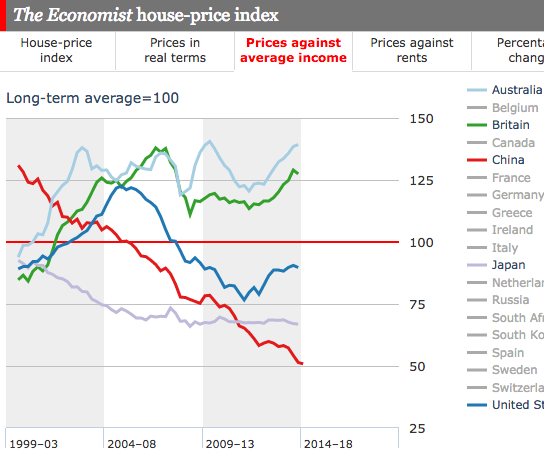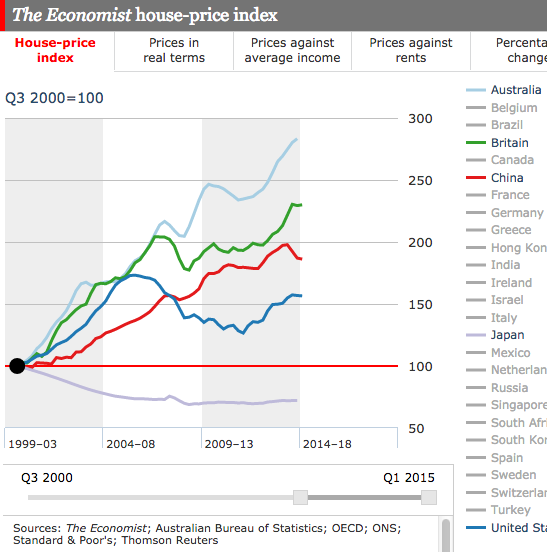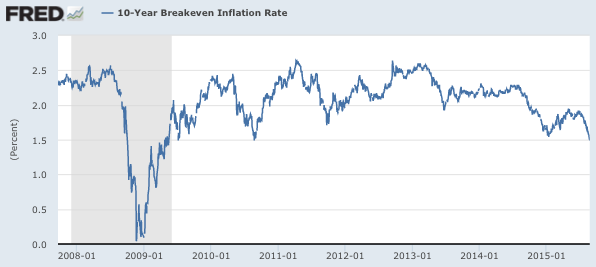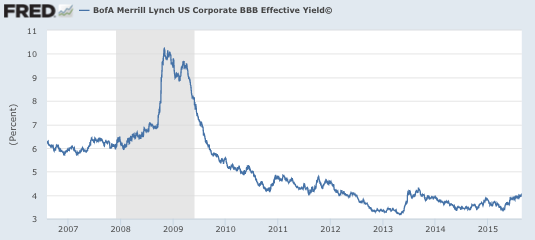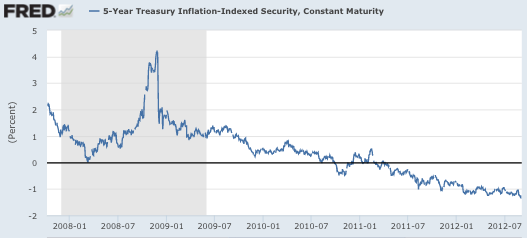Bob Murphy on Efficient Markets
Bob Murphy is frustrated, but he’s lashing out at the wrong theory:
I understand the Efficient Markets Hypothesis, and I think it’s a very good way to take a first crack at the markets. The thing that annoys me about many EMH proponents is that they think they are being empirical and scientific, when they often are clearly able to explain any outcome in their framework. Steady growth? Just what EMH predicts. Massive crash? Just what EMH predicts. In practice, the EMH is non-falsifiable, which is ironically the criticism many of its proponents level at others.
The EMH is most certainly “falsifiable.” It’s been tested in many ways. Some people even claim that it has been falsified, although I’m not convinced. In the tests that I think are the most relevant the EMH comes out ahead. (Stocks respond immediately to news, stocks follow roughly a random walk, indexed funds outperformed managed funds, excess returns are not serially correlated, or not enough to profit from, etc., etc.) I assure you that if stocks responded to news with a 12-hour lag, or were clearly far from being a random walk, even Fama would reject the EMH. BTW, is ABCT refutable? If so, how? (I don’t regard refutability as the most important test of a theory–usefulness and coherence are better tests in many fields.)
I think this following passage from Scott is a tad slippery:
Murphy seems to suggest that the fact that Austrian economists were not surprised by the volatility is a point in their favor. But why? Who was surprised? If you had asked me a year ago “Do you expect occasional volatility, up and down?” I would have said yes, and also that I had no idea when that volatility would occur, or in which direction the market would move.
Look, there was nonstop coverage of this on NPR when it happened. They were trotting out all kinds of people, including Austen Goolsbee, to make sure Americans kept their money in Wall Street. I’m not making this up, give me a break.
Monday showed the biggest intraday point swing in history. (Granted, you would want to look at percentage swing for a better comparison, but I can’t find such a ranking.)
And according to this guy’s analysis, by one measure of market volatility-the VVIX-Monday blew the previous record out of the water:
Bob should not rely on NPR for his stock analysis. And you really should look at percentages, not absolute changes. He talks like the US just experienced a stock market crash, at a time when the market less than 10% below its all time high! Monday was not a particularly big deal in terms of stock market history. Yes, the volatility was unusually large by the standards of 2015, but this has been an unusually placid year. Back in 2008 we had weeks and weeks of non-stop action that was roughly as volatile as Monday. I’d guess that one could find many hundreds of days throughout stock market history where the stock market fell by as much as it did on Monday.
But let’s say I’m completely wrong, and stocks were historically volatile. Even then Bob’s wrong, as he completely misunderstood my quote. By “more of the same” I merely meant the most likely outcome for the market was what we have observed in the past. There are periods of stability and periods of volatility. If the S&P is at 2108, and someone asks me where I expect it to be in two weeks, I’d say 2108, or maybe 2109 (to reflect a gradual upward trend.) But that does NOT mean I actually expect the stock market to equal precisely 2109 in two weeks time. Rather it reflects the fact that I view it as being equally likely to rise or fall. I actually think it far more likely that it would be considerably higher or lower than at that specific point estimate. Bob’s frustrated that I’m not making market forecasts that can be refuted, but that’s because I don’t think it’s possible to forecast the market.
And I feel the same about the business cycle. The US has recessions every 5 or 10 years, China less often. We don’t know when the next one is coming. Usually I’m right, because any given year I say that growth is more likely than a recession, and when the recession actually occurs then I’m wrong. I was wrong in 2008, as I did not predict a recession in 2007.
Now if last year Bob had said there’d be a crash on August 24, 2015 and it happened, then more power to him. But as far as I can tell he simply posts “I told you so” blog posts after every minor pull back, before the market again soars to new heights. Then another modest pullback, and another “I told you so.” I honestly don’t know what we are to make of all that. Does the Austrian model provide some key to predicting the stock market? If not, why talk about stock moves as if they support the model?
If you want to say I’m a broken clock, or that we should wait and see what things look like in three years, etc., that’s fine. But come on, don’t act like predicting “more of the same” two weeks ago is consistent with what just happened.
Bob doesn’t tell his readers that the link is to me discussing the Chinese business cycle, not the US stock market. Some might even say that’s misleading, as his post implies it applies to the US stock market. But I won’t complain; I stand by my previous “more of the same” as being a wise prediction, and I’ll apply it to the US, to China, to stocks or business cycles. Whatever Bob wants. And if I visit the Sands casino and I predict that the little bouncing ball will land on a red or black, and it ends up on the green 0 or 00, I’ll stand by my prediction that red or black were the most likely outcomes. That I made a wise prediction.
In most areas of life we judge competence by track record. Doctors, lawyers, engineers, etc. But that doesn’t work for market forecasters. Track record tells us nothing about the competence of stock pickers. It doesn’t tell us whether their future predictions will be better than those with a poor record. And I think that really frustrates people. It goes against common sense than past performance is not an indicator of competence. But it just isn’t. I think that might be why Bob is exasperated by my placid agnosticism.
PS. Obviously I do know that volatility is serially correlated. I hope readers don’t think I’m THAT stupid. Thus it goes without saying that for the Chinese market a “more of the same” prediction two weeks ago implies a prediction of continued high levels of volatility. Which is what happened. You may disagree with me, but please don’t assume I’m a complete moron.


